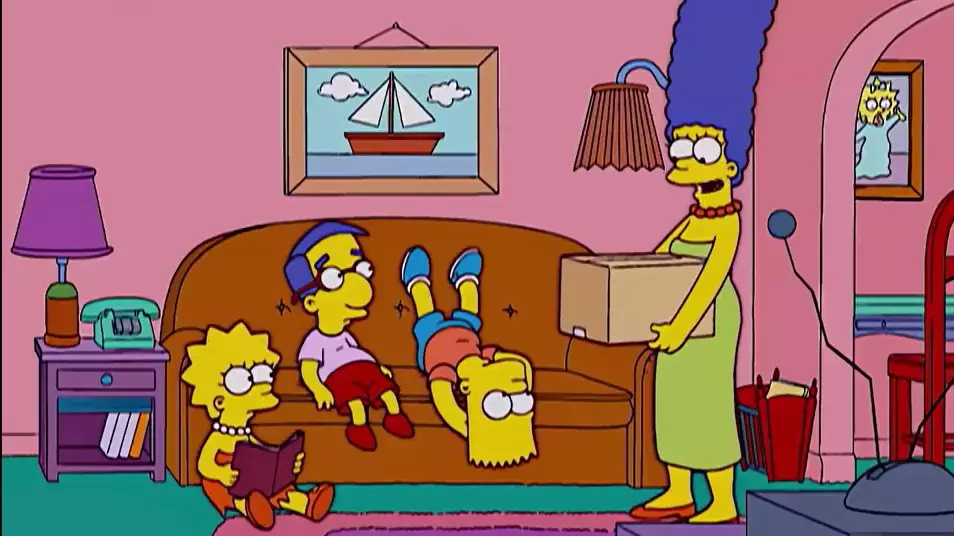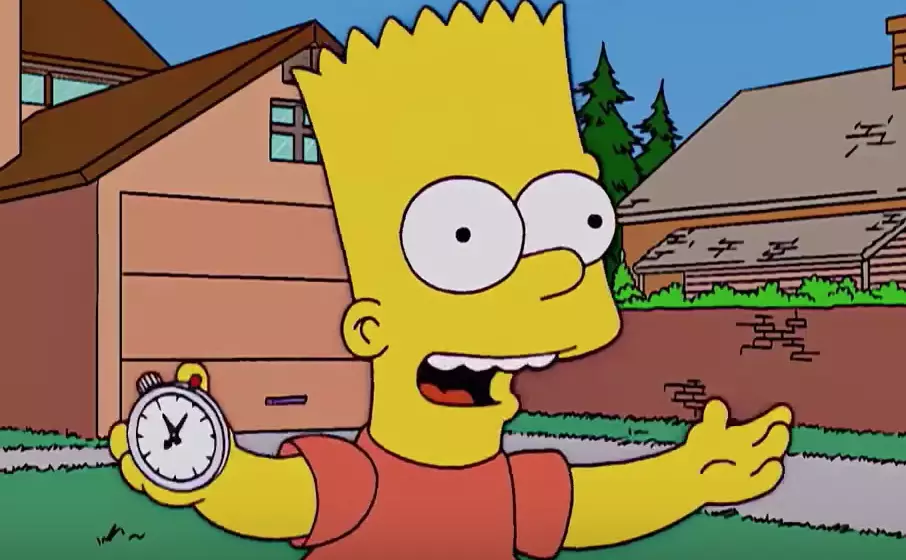
There's been a lot of talk of late about television shows not, well, really standing the test of time.
Millennial television viewers have been tweeting in their droves about the perceived sexism, transphobia, homophobia and fat-shaming in Friends.
New Statesmen writer Niamh Ní Mhaoileoin criticised Chandler's character for 'dehumanising contempt' for his father and argued that the 'of its time' argument 'only makes it more sinister'.
Advert
Recently, Netflix viewers have claimed that Only Fools and Horses episodes show signs of racism, and in recent times The Simpsons has been criticised for similar reasons.
Perhaps the most obvious example from the US animated series is the characterisation (and importantly voicing) of Apu, the Indian Kwik-e-Mart employee.
In a New Yorker article last year, professor and writer Hua Hsu noted Apu's 'theatrically thick' accent and, while not calling The Simpsons racist, per se, argued that Apu's voicing was an example of 'soft racism', comparing his character to others in American culture such as Uncle Tom or Charlie Chan, characters 'invented to thwart stereotypes only to end up advancing different, softer, no less racist stereotypes in their stead'.

In the wake of a documentary arguing that Apu represented a racial stereotype, Hank Azaria, who voices the character (among others) told TMZ: "I think the documentary made some really interesting points and gave us a lot to think about and we really are thinking about it... Definitely anybody that was hurt or offended by it, or by any character or vocal performance, it's really upsetting that it was offensive or hurtful to anybody."
Advert
However, Apu's characterisation isn't the only issue some viewers have taken when watching back old episodes of the series.
Some have also labelled the show xenophobic in episodes set in foreign countries, such as Thirty Minutes Over Tokyo and Bart vs. Australia, which played on Japanese and Australian stereotypes respectively. Depending on how you see it, such episodes could be seen as perpetuating tiresome stereotypes without nuance, or were simply a lighthearted nod to (and dig at) generally held perceptions about both countries.
The series has also in the past been criticised for perpetuating stereotypes about men impersonating women and impersonating being a lesbian, leading it to being labelled as transphobic.
Advert
Conversely, the show has also been praised for casting a light on inherent societal sexism, while one of its most famous episodes, Homer's Phobia (from 1997) essentially told father's to get over it if their sons turned out to be gay.
Given that I'm a white, heterosexual man, I'm not the person to make a call as to whether The Simpsons has been homo/transphobic, sexist or racist over the years as I'm lucky not to have to face the issues therein.
As is always the case, you'll just have to watch - and decide - for yourselves.
Featured Image Credit: FoxTopics: Entertainment, TV and Film, the simpsons, TV